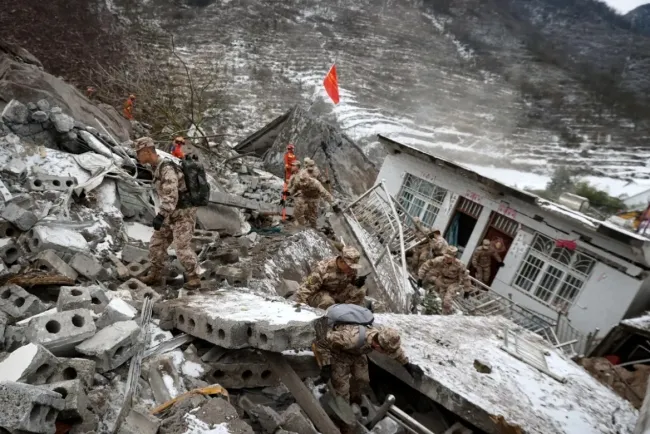Israel Strikes Beirut: A New Escalation in Regional Tensions
In a significant escalation, Israel has launched its first airstrike on Beirut since the ceasefire began in November, targeting a Hezbollah drone storage facility. What does this mean for the region's stability? Read on for insights!
Israel has reignited tensions in the region with a recent airstrike on Beirut, marking its first attack on the Lebanese capital since the ceasefire took effect over four months ago. This strike, which targeted a Hezbollah drone storage facility in a residential area of southern Beirut, raises concerns about the potential for further escalation in an already volatile situation.
Details of the Airstrike
Reports from Beirut indicated that residents heard a loud explosion, followed by smoke rising from the site, which is located near schools and commercial buildings. Local residents expressed their fears, stating that the attack aimed to intimidate the population but would not succeed in instilling fear. Israeli officials justified the strike as a response to recent rocket fire from Lebanon into northern Israel, asserting that such military actions would continue until the Lebanese government takes measures to prevent further attacks.
Israel’s Defense Minister, Yoav Gallant, warned that without peace in northern Israel, peace would be unattainable for Beirut. This statement underscores the interconnected nature of security in the region, where actions taken by one party can prompt retaliation from another.
Hezbollah's Response
Hezbollah has denied responsibility for the rocket attacks that reportedly triggered Israel's airstrike, framing the Israeli action as an attempt to create a pretext for ongoing military operations in Lebanon. The group’s denial highlights the complexities of the conflict, where accusations and counter-accusations often exacerbate tensions and lead to miscalculations.
U.S. Involvement and Sanctions
The United States has expressed support for Israel's right to defend itself, emphasizing the need for the Lebanese government to disarm militant groups like Hezbollah. In conjunction with these statements, the U.S. has imposed new sanctions targeting individuals and entities associated with Hezbollah's financial operations, signaling a broader strategy to curb the group's influence in the region.
Wider Implications
This airstrike in Beirut coincides with a renewed wave of U.S. airstrikes in Yemen, targeting Houthi positions in response to recent attacks on shipping routes in the Red Sea. Such simultaneous military actions highlight the multifaceted nature of regional conflicts and the potential for broader instability if diplomatic solutions are not pursued.
Conclusion
As Israel strikes again in Beirut, the potential for an escalated conflict looms large. The actions of regional powers and non-state actors like Hezbollah, alongside the involvement of the U.S., will continue to shape the landscape of Middle Eastern politics. The situation remains fluid, and the international community must remain vigilant in seeking a sustainable resolution to prevent further violence.
For the latest updates on the situation in Lebanon and surrounding regions, stay connected with our blog.
What's Your Reaction?
















